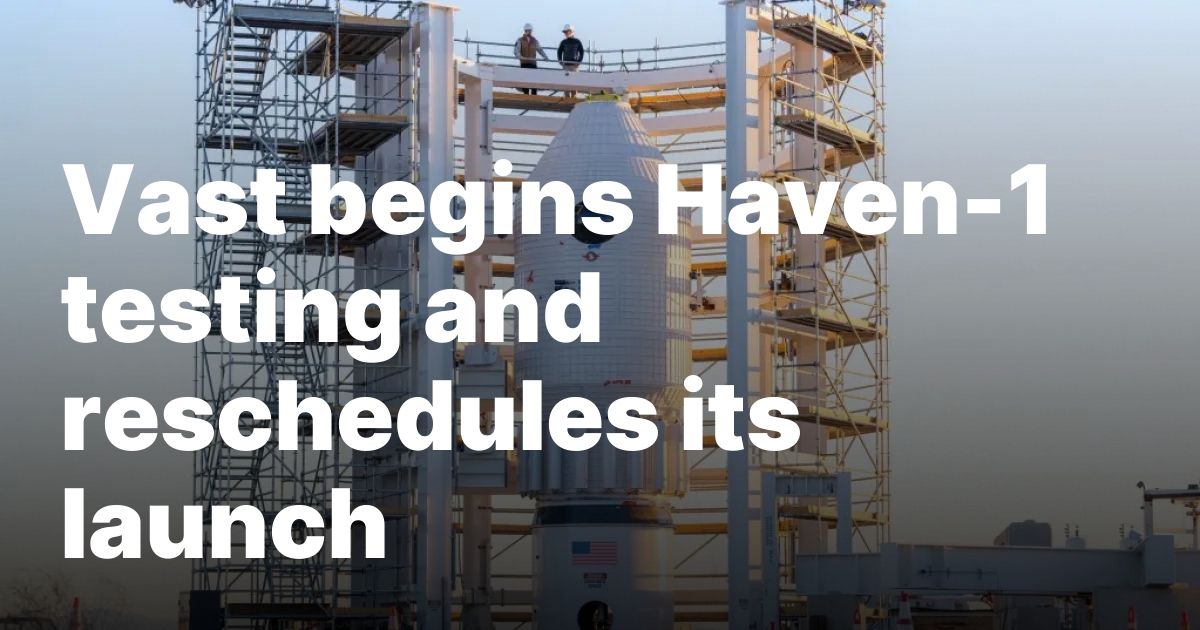Vast announced Feb. 6 that it started testing the primary structure qualification article for its Haven-1 station at a facility in Mojave, California. That included a proof test where the module was pressurized to 1.8 times its normal pressure as well as a leak test.
“On the first try we passed that critical test,” Max Haot, chief executive of Vast, said of the proof test in an interview. The company noted in a statement that there was an “indiscernible” leak rate during the 48-hour leak test.
In an October 2024 interview about its larger Haven-2 station, Haot said the company was still targeting a launch in the second half of 2025.
Vast now says that Haven-1 will launch no earlier than May 2026, which Haot said was based on the company’s better understanding of what it would take to build the flight model after completing the qualification article. “We wanted to reach this milestone to make sure the schedule doesn’t move again.”
Under the revised schedule, Vast expects to complete the primary structure of the flight article in July and perform integration and testing in the second half of the year. The company has an agreement to then perform environmental testing of Haven-1 at the Neil Armstrong Test Facility, formerly Plum Brook Station, in Ohio. From there, the module will go to Florida for a launch in May 2026. The first crew would then launch to Haven-1 on a Crew Dragon spacecraft no earlier than the end of June.
Direct link to press release: https://www.vastspace.com/updates/vast-passes-critical-haven-1-test-milestone
Yawn - Another space startup doing the corporate two-step with launch dates. Let me translate this PR speak into reality: “We found some critical bugs during testing that would’ve turned our fancy spacecraft into very expensive space debris.”
Haven-1? More like Haven’t-1, am I right? Every “rescheduling” announcement is just Silicon Valley’s way of saying “oops” without tanking their Series C funding.
At least they’re testing. Remember when space companies actually launched things instead of endlessly “optimizing their testing parameters”? These days it’s all about that sweet investor money while actual space exploration takes a backseat to PowerPoint presentations.


